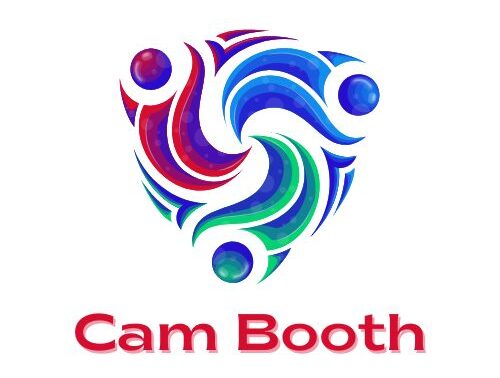When discussing business growth strategies, terms like ‘digital marketing’ and ‘social media marketing’ often come up interchangeably. However, while closely linked, they represent distinct approaches to online marketing. Understanding the difference is essential for businesses looking to maximize their marketing efforts effectively.
This blog will break down the key differences between digital marketing and social media marketing, exploring their unique tools and benefits. Whether you’re a small business owner, marketing professional, or simply curious about modern marketing strategies, you’ll walk away with a clear understanding and actionable insights to fuel your business growth.
What is Digital Marketing?
Digital marketing encompasses all marketing efforts that use electronic devices or the internet. It’s an umbrella term that includes multiple channels and tactics designed to reach and engage audiences online. From websites and email campaigns to display ads and SEO (search engine optimization), digital marketing has a broad scope that goes well beyond just social media.
Key Components of Digital Marketing
- Search Engine Optimization (SEO): Optimizing your website content to rank higher in search engine results, increasing visibility organically.
- Email Marketing: Communicating with your audience through targeted emails, nurturing leads, and driving sales.
- Content Marketing: Creating valuable, relevant content, like blogs, videos, and whitepapers, to attract and retain an audience.
- Pay-Per-Click (PPC): Running paid ads on platforms like Google Ads to draw immediate traffic based on targeted keywords.
- Affiliate Marketing: Partnering with individuals or companies to promote your products or services in exchange for a commission.
- Web Advertising: Using banner ads or video ads across various online platforms to reach potential customers.
Pros of Digital Marketing
- Diverse Channels: You can reach audiences via multiple touchpoints, from organic search to display ads across the web.
- Scalability: Suitable for small startups and large corporations alike, with the ability to scale quickly.
- Data-Driven Insights: Tools like Google Analytics allow businesses to precisely measure their campaigns’ success, track website traffic, and optimize marketing strategies.
Digital marketing is all about extending your reach across digital spaces, ensuring your brand is visible wherever your potential customers are spending time online.
What is Social Media Marketing?
Social media marketing is a subset of digital marketing, focusing exclusively on promoting your brand through social media platforms like Instagram, Facebook, TikTok, LinkedIn, and Twitter (now X). It leverages these platforms to create content, engage with followers, and drive traffic or sales.
Key Components of Social Media Marketing
- Content Creation: Crafting posts, reels, videos, and infographics that align with audience preferences.
- Community Engagement: Responding to comments, answering messages, and interacting with followers to build trust and loyalty.
- Hashtag Strategy: Using relevant and trending hashtags to expand content reach.
- Influencer Collaborations: Partnering with influencers to promote products to their audiences.
- Social Media Advertising: Paid campaigns run directly through social platforms to reach targeted demographics.
Pros of Social Media Marketing
- Audience Interaction: You can engage directly with customers, creating a two-way communication system.
- Viral Potential: A single post or campaign can go viral, delivering massive brand exposure at little cost.
- Demographic Targeting: Social platforms like Facebook and Instagram allow specific targeting based on age, interests, behavior, geography, and more.
Social media marketing thrives on relationships and community building, placing a strong emphasis on authentic connections.
Digital Marketing vs. Social Media Marketing
While digital marketing covers almost any tactic deployed in the digital space, social media marketing zooms in on one aspect of it—social platforms. Here’s an in-depth comparison of the two:
1. Scope
- Digital Marketing covers a wide range of digital strategies, from email marketing to pay-per-click ads.
- Social Media Marketing focuses solely on leveraging social media networks to engage with audiences and build brand awareness.
2. Channels
- Digital Marketing uses a mix of online channels, including websites, search engines, email, and more.
- Social Media Marketing utilizes only social platforms like Instagram, TikTok, and LinkedIn.
3. Audience Reach
- Digital Marketing can reach a wider audience, including those who may not be active on social platforms but frequently use search engines or email.
- Social Media Marketing aligns more with users who are highly active on specific platforms.
4. Tools and Platforms
- Digital Marketing uses tools like Google Ads, SEO software (e.g., Ahrefs, SEMrush), and email automation tools like Mailchimp.
- Social Marketing focuses on platform-specific scheduling tools like Hootsuite and advertising dashboards like Meta Ads Manager.
5. Engagement Style
- Digital Marketing is more transaction-focused, such as driving traffic to websites or generating sales.
- Social Marketing is more interaction-based, building relationships with audiences through comments, likes, and shares.
How to Choose the Right Marketing Strategy for Your Business
If you’re wondering whether to focus on digital marketing or social marketing, the answer largely depends on your business goals and audience.
When to Focus on Digital Marketing
- You Need Broad Reach: If your goal is to attract diverse audiences across multiple channels like search engines, emails, and ads, digital marketing offers more scope.
- You Want Data-Driven Results: For businesses that prioritize data analysis and measurable results, digital marketing provides tools for precise performance tracking.
- You’re Targeting B2B Clients: Business-to-business enterprises can benefit from strategies like email marketing and SEO, which are critical for generating leads.
When to Focus on Social Media Marketing
- Your Audience Lives on Social Platforms: If your target demographic spends significant time on Instagram, TikTok, or LinkedIn, social media marketing is non-negotiable.
- You Want a Loyal Following: Building brand advocates who consistently engage with your content works best through social strategies.
- Your Product or Service is Visual: For industries like beauty, food, travel, or fashion, where visuals dominate, social media platforms are ideal for showcasing products.
Merging Digital and Social Media Marketing for Maximum Impact
While separate in definition, digital marketing and social media marketing work better together than apart. Here’s how you can merge both strategies:
- Leverage Social Media Data in Digital Campaigns: Use insights from your most engaging posts to inform SEO, email subject lines, or ad copy.
- Drive Traffic from Social Media to Your Website: Use social posts to direct users to your blog, landing pages, or eCommerce store—linking digital and social pathways.
- Use Retargeting Ads: Re-engage users who interacted with your social media posts through Google Ads or email campaigns.
A hybrid approach ensures you’re reaching your audience wherever they are while nurturing meaningful interactions for long-term loyalty.
Begin Your Marketing Journey Today
Understanding the nuances between digital marketing and social marketing is your first step toward creating a strong marketing strategy. Whether you’re a small business owner crafting your first campaign or a seasoned marketer refining your approach, both strategies have the potential to work wonders when executed thoughtfully.
Need help tailoring a strategy for your business? Explore our range of digital marketing solutions that seamlessly integrate social strategies. Get started today, and watch your brand grow.
Frequently Asked Questions (FAQs)
What is the main difference between digital marketing and social media marketing?
Digital marketing is a broad term encompassing all online marketing efforts, including email marketing, SEO, PPC, and more. Social media marketing, on the other hand, is a subset of digital marketing that focuses specifically on leveraging social media platforms to engage with audiences, build brands, and drive conversions.
Can I use social media marketing without a digital marketing strategy?
While it is possible to use social marketing alone, the most successful campaigns integrate social strategies into a comprehensive digital marketing plan. This ensures consistency across channels and maximizes your reach and impact.
How do I choose the right platform for social media marketing?
The best platform for your business depends on your target audience and goals. Research where your audience is most active—whether it’s Instagram for a younger demographic, LinkedIn for professionals, or TikTok for creative engagement—and focus on those channels.
How long does it take to see results from digital marketing?
Results vary depending on the strategies implemented and your industry. Some efforts, like PPC campaigns, can yield quick results, while others, like SEO, require a longer-term commitment but provide sustainable growth over time.
Do I need a big budget to start digital marketing?
Not necessarily. Digital marketing offers scalable solutions for all budgets. Start small with targeted campaigns and gradually increase your investment as you see what works best for your business.









